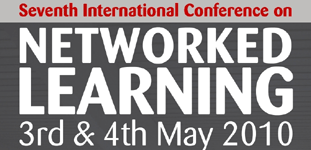

Who's taming who? Tensions between people and technologies in cyberspace communities
Terrie Lynn Thompson
University of Alberta, Edmonton, AB, Canada
Abstract
It would seem that for many people, spaces on the web have become an integral part of their lives. This may include seeking out learning opportunities in online communities. There is much said about how technology is changing our lives. Web2.0, which includes the much heralded social media, is creating the most recent buzz. How do people negotiate the materiality of screens and settings; discussion boards, RSS feeds and chat forums; passwords and Facebook profiles? This paper draws on conceptual and analytical tools from Actor Network Theory (ANT) to explore how the inter-actions between web-technologies and self-employed workers shape work-learning practices in an online community. Community can describe a gathering of people online that is self-managed, organic, driven by a shared interest, and highly social. These collectives form because someone is interested in a topic and searches for like-minded others. These online spaces may also be purposefully nurtured by professional associations, workplaces, or businesses. This research project focuses on spaces such as these-spaces outside the auspices of formal online courses. The paper begins by examining the promises of web technologies, the importance of foregrounding objects in qualitative research studies, and the co-constitutive relationship between human and nonhuman actants. An overview of the way that I use ANT sensibilities in order to analyze my data is presented. Because ANT emphasizes the interactions between actors, things are always the effect of a network of relations between an array of heterogeneous entities (Singleton, 2005). Learners are therefore participants in networks of practices and learning emerges as an effect of the network. Thus, online communities are not containers for online activities but rather networks of relations in constant flux. Findings suggest that participating "in" an online community is a series of journeys and passages. The data also highlights how these passages, or moves, towards stabilizing tenuous actor-networks are countered by unpredictable disruptions, creating ongoing (dis)orderings that transform networks. As participants in this study attempt to "tame" the technology, the technologies-in-use are doing their part to tame other actants. However, these relationships do not reflect two separate camps of humans here and non-humans there, but rather, hybrids or socio-technical constructions-a blending. The paper concludes with questions about the politics of technology that emerge from uncertainties around delegation, invisible practices, and necessary literacies.
| About NLC | Welcome Messages| Acknowledgwments | Conference Proceedings| Keynote Speakers| Index of Presenting Authors| Contact |